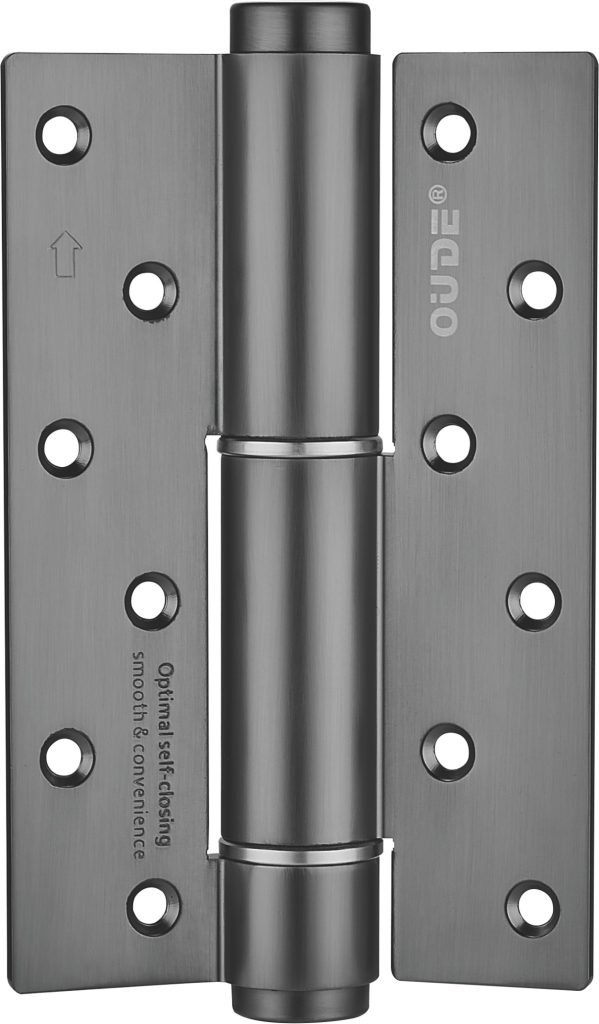
In commercial buildings, door hardware is more than a functional necessity—it’s a cornerstone of safety, accessibility, and design.
From securing entryways to facilitating smooth traffic flow, the right door hardware parts play a pivotal role in meeting the unique demands of commercial spaces.
Whether you’re outfitting a bustling office or a high-traffic retail store, selecting the right commercial door hardware ensures both performance and compliance.
In this article, we’ll delve into the five essential components of commercial door hardware and key considerations for choosing the right solutions for your building.
Commercial door hardware encompasses a wide range of components designed to ensure safety, security, and ease of use.
Below are the five key types of commercial door hardware parts:
Commercial door closers are essential for managing the flow of traffic in high-use areas. They ensure doors close automatically, improving security and energy efficiency by reducing air leakage.
Door closers also play a critical role in fire safety compliance, ensuring that fire doors remain closed when not in use, which helps contain smoke and flames during emergencies.
Modern door closers come with adjustable settings, allowing you to control the closing speed and force, making them suitable for various door weights and applications.
A reliable door lock latch is crucial for securing commercial spaces. These components come in various types, such as mortise locks, cylindrical locks, and electronic locks.
Mortise locks are known for their strength and durability and are often used in high-security areas.
Cylindrical locks, on the other hand, are more common in general office settings.
Electronic locks and smart locking systems are increasingly popular, offering keyless entry and integration with access control systems.
These advancements enhance both security and convenience, making them a staple in modern commercial buildings.

Door hinges are foundational elements of indoor operation, ensuring smooth opening and closing.
In commercial environments, heavy-duty hinges are required to support frequent use and heavier doors. These hinges are often made from durable materials like stainless steel or brass to resist wear and corrosion.
Brackets, while less visible, add structural stability, ensuring that doors remain properly aligned and function seamlessly over time.
Pivot hinges and continuous hinges are particularly popular in commercial applications, offering enhanced durability for high-traffic areas.

Panic bars, also known as crash bars, are vital for emergency exits. They allow for quick and easy door operation in case of an evacuation, meeting safety standards while ensuring user convenience.
These devices are designed to be intuitive, enabling even untrained individuals to operate them in stressful situations.
Panic bars are a must-have in public buildings such as schools, hospitals, and theaters, where safety regulations mandate their use.
Additionally, they can be paired with alarm systems to alert building management during unauthorized exits.
Modern commercial door hardware often includes advanced access control systems.
These systems integrate electronic locks, keypads, card readers, and biometric scanners, providing enhanced security and the ability to monitor entry and exit activity.
Access control systems are particularly valuable for buildings with tiered access needs, such as offices with restricted areas or warehouses requiring inventory protection.
These systems also offer remote management capabilities, allowing administrators to grant or revoke access instantly.
When selecting commercial door hardware parts, it’s important to evaluate several factors to ensure the best fit for your building:
High-traffic areas demand robust and durable hardware. Commercial door hardware is designed to withstand frequent use, minimizing wear and tear over time.
For instance, heavy-duty door hinges and closers are essential in settings like shopping malls, airports, and hospitals, where doors are constantly in motion.
Consider the expected daily traffic volume when choosing hardware to ensure longevity and performance.
Building codes often dictate specific requirements for door hardware, such as ADA-compliant designs or fire-rated components.
Ensuring compliance not only guarantees safety but also avoids costly fines or renovations in the future.
For example, ADA-compliant door hardware includes features like lever handles and automatic door closers to accommodate individuals with disabilities.
Fire-rated hardware ensures that doors provide adequate protection in the event of a fire, a requirement in many commercial buildings.
Pro-Tip: Look for a reputable commercial door hardware manufacturer to ensure you get the best quality that meets industry standards.
Door hardware maintenance is a key factor in prolonging the life of your investment. Choose materials and designs that are resistant to corrosion, wear, and environmental conditions.
Stainless steel and other durable finishes are excellent choices for hardware exposed to moisture or outdoor elements.
Regular maintenance schedules, such as lubrication of hinges and inspection of locks, can further ensure optimal performance and prevent unexpected failures.
While functionality is paramount, aesthetics also matter in commercial settings.
Door hardware should complement the overall design of the building, providing a professional and cohesive appearance.
Customizable finishes and styles allow you to align hardware with your architectural vision.
For example, matte black or brushed nickel finishes can add a modern touch to office interiors, while polished brass may be more suitable for traditional or upscale establishments.
Commercial door hardware is a critical component of any building, ensuring safety, security, and functionality.
Each piece—from durable door closers to advanced access control systems—plays a specific role in meeting the rigorous demands of commercial spaces.
By considering factors like traffic volume, compliance, and maintenance, you can select hardware that not only meets your building’s operational needs but also enhances its aesthetic appeal.
For reliable and high-quality commercial door hardware solutions, explore options tailored to your requirements, ensuring long-lasting performance and peace of mind.




